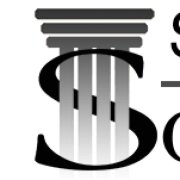Best Class Action Lawyers in Sanremo
Share your needs with us, get contacted by law firms.
Free. Takes 2 min.
List of the best lawyers in Sanremo, Italy
About Class Action Law in Sanremo, Italy
Class action lawsuits (azione di classe) are a legal instrument in Italy that allow groups of individuals who have suffered similar damages from the same entity to come together and seek justice through the courts. While class actions are not as prevalent in Italy as they are in countries like the United States, their use has been increasing since their formal introduction in 2010. In Sanremo, as part of the broader Italian legal system, class action law provides a way for citizens and consumers to protect their rights against companies, public authorities, and other entities that may have caused collective harm.
Why You May Need a Lawyer
You may find yourself in need of legal assistance regarding class action matters in several situations:
- Consumer Rights Violations: If you and others have been affected by unfair commercial practices, defective products, or misleading advertising.
- Contractual Disputes: When a company or service provider has breached contracts with multiple customers or clients.
- Environmental Damage: In cases where a business activity causes environmental harm affecting a community or group.
- Securities and Investment Losses: For instances of mismanagement or fraud affecting groups of investors.
- Antitrust Violations: When competition laws are violated, causing widespread harm to market participants.
Local Laws Overview
Class action law in Italy is governed mainly by the Codice di Procedura Civile (Civil Procedure Code), articles 840-bis and following, along with other relevant consumer and sector-specific laws. In Sanremo, class actions follow the same procedures as elsewhere in Italy, including:
- Who Can File: Individuals, groups, or organizations representing collective interests can submit a class action to the competent court (usually the Tribunale).
- Types of Harm Covered: Damages must be homogeneous among the class members; examples include consumer damage, unfair competition, and environmental claims.
- Process: There is a phase to admit the action, publicizing it to allow others to join, followed by the main trial if the action is admitted.
- Deadlines: Actions must be filed within certain time limits, depending on the nature of the damage and relevant prescription periods.
- Outcomes: Rulings may provide compensation or require certain behaviors from the defendant; execution and distribution of compensation is managed by the court.
Frequently Asked Questions
What is a class action lawsuit?
A class action is a legal procedure that allows a group of people who have suffered the same or similar harm to jointly pursue their claims in court against a common defendant.
Who can start a class action in Sanremo?
Any individual, association, or entity that has suffered a similar harm or represents affected individuals can start a class action, provided they meet legal criteria.
What types of cases are suitable for class action?
Common examples include consumer rights cases, product liability, environmental damage, antitrust violations, and financial misconduct.
How do I know if I am eligible to join a class action?
You must have suffered harm similar to that of the proposed class, and your claim must fall within the defined scope of the class action. A lawyer can verify your eligibility.
Is there any financial risk for joining a class action?
Typically, costs are shared among participants. In some cases, no fees are required unless the action is successful, but this should be confirmed with your legal representative.
How long does a class action take in Italy?
Class actions can take several years to resolve, depending on complexity, number of claimants, and court workload.
Can foreign citizens join class actions in Sanremo?
Yes, if they have suffered the same harm in Italy as other claimants and the case meets legal criteria, foreign citizens may join.
Which court handles class actions in Sanremo?
The Tribunale di Sanremo (Sanremo Civil Court) handles class actions filed in its jurisdiction.
What happens if the action is successful?
If successful, the court determines compensation or corrective actions. Damages are then distributed among eligible class members.
Do I need a lawyer to join a class action?
While you are not always required to have your own lawyer to join an existing class action, legal advice is crucial to protect your interests and ensure your claim is properly represented.
Additional Resources
If you are considering legal action or need advice, the following resources may be useful:
- Ordine degli Avvocati di Sanremo: The local Bar Association can help you find qualified lawyers with experience in class action law.
- Consumers’ Associations: Organizations such as Altroconsumo, Codacons, and Federconsumatori often initiate or support class action cases.
- Tribunale di Sanremo: The Sanremo Court provides information about ongoing class actions and filing procedures.
- Chamber of Commerce (Camera di Commercio Imperia): For guidance regarding business-related class actions.
- National Government Portals: The Italian Ministry of Justice website contains guides and forms related to class action procedures.
Next Steps
If you believe you have a claim that may be suitable for a class action in Sanremo:
- Document the Harm: Collect all relevant evidence, including contracts, correspondence, and proof of damage.
- Contact a Qualified Lawyer: Seek advice from a local lawyer experienced in class action and collective redress. The Ordine degli Avvocati di Sanremo can assist.
- Join or Initiate an Action: Determine if there is already a class action related to your issue, or discuss starting a new one with your lawyer and possibly with consumer associations.
- Monitor Deadlines: Ensure actions are taken within legal time limits to avoid losing your rights.
- Stay Informed: Follow updates on your case through your legal representative or official court communications.
Lawzana helps you find the best lawyers and law firms in Sanremo through a curated and pre-screened list of qualified legal professionals. Our platform offers rankings and detailed profiles of attorneys and law firms, allowing you to compare based on practice areas, including Class Action, experience, and client feedback.
Each profile includes a description of the firm's areas of practice, client reviews, team members and partners, year of establishment, spoken languages, office locations, contact information, social media presence, and any published articles or resources. Most firms on our platform speak English and are experienced in both local and international legal matters.
Get a quote from top-rated law firms in Sanremo, Italy — quickly, securely, and without unnecessary hassle.
Disclaimer:
The information provided on this page is for general informational purposes only and does not constitute legal advice. While we strive to ensure the accuracy and relevance of the content, legal information may change over time, and interpretations of the law can vary. You should always consult with a qualified legal professional for advice specific to your situation.
We disclaim all liability for actions taken or not taken based on the content of this page. If you believe any information is incorrect or outdated, please contact us, and we will review and update it where appropriate.









